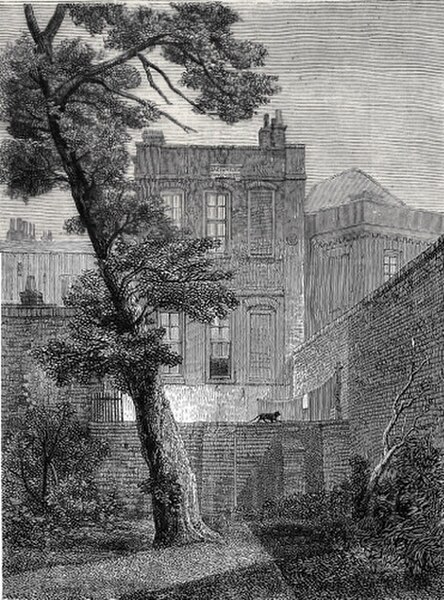James Mill was a Scottish historian, economist, political theorist and philosopher. He is counted among the founders of the Ricardian school of economics. He also wrote The History of British India (1817) and was one of the prominent historians to take a colonial approach. He was the first writer to divide Indian history into three parts: Hindu, Muslim and British, a classification which has proved surpassingly influential in the field of Indian historical studies.
James Mill
The back of No. 19, York Street (1848). In 1651, John Milton moved into a "pretty garden-house" in Petty France. He lived there until the Restoration. Later it became No. 19 York Street, belonged to Jeremy Bentham, was occupied successively by James Mill and William Hazlitt, and was demolished in 1877.
Alexander Bain, James Mill. A biography, 1882
The History of British India
The History of British India is a three-volume work by the Scottish historian, economist, political theorist, and philosopher James Mill, charting the history of Company rule in India. The work, first published in 1817, was an instant success and secured a "modicum of prosperity" for Mill. Mill categorized Indian history into the Hindu, Muslim and British periods on the basis of dominant political powers and their religious affiliations. Mill noted that he had never been to India and was unable to speak any Indian languages, though he claimed that this improved the work's moral objective. In the work, Mill frequently denounced Hindu culture and traditions, and it has been seen by historians as an example of anti-Indian sentiments in Britain during the period.
Title page of the first edition




